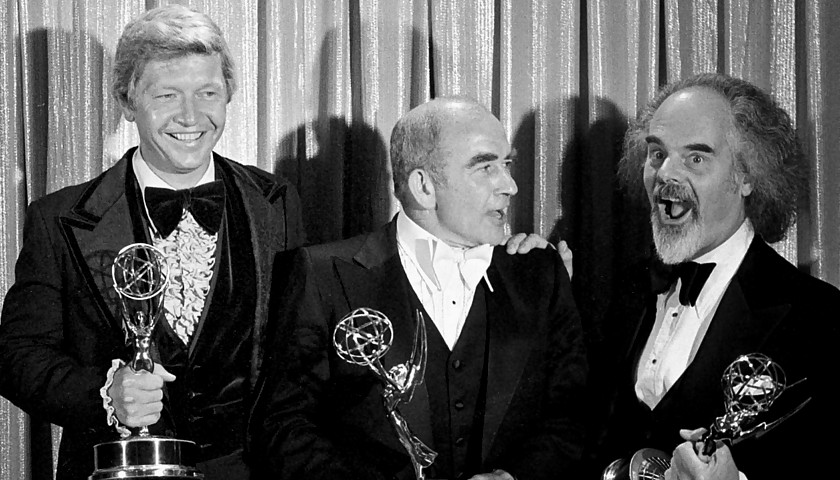by Helen Lamm
Art imitates life, but to an even greater extent, life imitates art. Like culture and politics, the two are intertwined in an infinite feedback loop. Sometimes it’s hard to tell where one begins and the other ends.
The latest addition to the wildly popular Marvel cinematic universe, “Captain Marvel,” came out last week. Written and directed by Anna Boden and Ryan Fleck and starring Brie Larson, it is the story of Carol Danvers, a maverick Air Force pilot turned superhero whose powers exceed those of all other superheroes in the Marvel world.
The writing is as hamfistedly political as the promotional materials (and Brie Larson’s unrestrained activism during the promotional period) would suggest. Despite all its claims at bravery and badassery, Captain Marvel communicates the very most banal and tiresome claim possible. It’s one we hear every day, a mantra that serves as prerequisite for those who seek employment in your average firm, matriculation at your average school, or participation in your average social club.
Yes, in case we’d all forgotten, women are equal to men, except better.
Abiding perfectly by Hollywood’s latest contra natura narrative about sex and life, of course, male characters occupy either one of two roles: bumbling sidekick or evil jerk. Female characters, on the other hand, are paragons of leadership.
In the beginning of the movie, the audience is led to believe that Carol Danvers’ fatal flaw is that she cannot control her emotions. As the story plays out, it is revealed that the villain, the male supervisor who was advising her to “control her emotions,” was only doing so to keep her power at bay. So her essential flaw was not essential at all. It was more incidental. The only thing she actually had to overcome was an obstacle foisted upon her by a man.
Danvers was essentially perfect and always had been. She merely needed to realize how perfect she was, which she did quite passively, through the gradual revelation of information from other people, including her best friend: an equally “empowered” (save for the photon blasting abilities) single black mother (I thought we hated stereotypes here). Eventually, Danvers gains access to her full power by removing a headpiece installed by her oppressors. Her character arc is that she presses a button and unlearns emotional regulation. And that’s about it.
The character of Carol Danvers echoes a new societal ideal, which is being held up for little girls and grown women alike to imitate, in case they hadn’t been acting out the past thirty years of propaganda by default already. Danvers is the post-sexual Mary Sue, an ersatz man who fears not and feels not. Her flaws, easily surmountable, say nothing of her womanhood. She is an empowered woman only by ceasing to be a woman in all meaningful ways. And by ceasing to be a woman, she neither needs nor desires any man.
Carol Danvers is homo sovieticus in the female form. Detached completely from nature and from any feminine essence, she is an unrelatable shell of a character. She exhibits neither the unbridled passion of a femme fatale nor the intentionally reserved desire of a chaste woman. Not that she has to have a romantic interest. But Danvers lacks any maternal instinct as well, and her female friendship with her bestie copilot rings hollow, like a cheap imitation of Maverick and Goose’s brotherhood with none of the humor or intimacy. Rather than her womanhood playing some unique and interesting role in her personhood, it is reduced to a setup for cheap jokes.
The average American woman has consumed a steady diet of “girl power” since she can remember. We’ve heard it our whole lives. Girls can do anything we put our minds to. We are made to believe that there are no real limits on our potential and no legitimate limits to our behavior. We believe that hearing “no” is invariably a signal of oppression, that “well-behaved women rarely make history,” and that men are either stupid and disposable or fundamentally evil. We are entitled to our notions of happiness at all costs, because we deserve it, and happiness is best discovered by transcending the patriarchy. So we set out to conquer the traditionally masculine workplace and abandon the traditional feminine hearth, because that’s what “empowerment” looks like: being a dude.
The societal result of this kind of this utterly mainstream, old, hackneyed “Captain Marvel”-type messaging is Elizabeth Holmes of Theranos. It’s AOC. It’s the succubus who wrote Eat, Pray, Love. It’s the spectacularly unfunny Amy Schumer or Lena Dunham. It’s the female careerist on birth control, SSRIs, and the wrong side of thirty who hesitates to settle down or reproduce on account of her professional potential. What do these types have in common? Entitlement and bitterness on the surface, sure, but deep down, a void of vulnerability and vitality. They are unfeminine because they have been raised as men.
Hollywood’s female empowerment meme has done nothing but desacralize the feminine on a symbolic level and create in its place a generation of extremely confused and angry if not numb women who have female parts but no feminine heart. Despite being “empowered,” women aren’t doing so well. Female happiness has been in a steady state of decline since the dawn of the feminist movement. The American birth rate is below replacement. Never before have women self-described as lonely and depressed in the rates they report right now.
This postmodern effort to annihilate distinctions between all things—high and low, right and wrong, male and female—has hurt women deeply. In an ironic sort of way, “Captain Marvel” does imitate the callous woman that feminism has created; like Carol Danvers, we women have in many ways forgotten who we are. Unlike Carol Danvers, if women are to truly reclaim their happiness, it will not be through the pharmakon cure that feminism offers. It will instead require that we imitate a higher form of femininity. “Captain Marvel” ain’t it.
– – –
Helen Lamm is a Mount Vernon fellow of the Center for American Greatness.
Image “Captain Marvel” by Marvel Studios.






It is quite amazing how many social changes have taken place in the USA since the 1960s. And yet few recognize the psychology employed by those who promoted the sexual revolution; that it was designed all along to obliterate the foundations of western society. http://yvancross.blogspot.se/2017/04/how-sexual-revolution-revolutionized.html
And sadly most people who send their kids off to see the movie that Helen Lamm analyzes in such an excellent manner will consider the message that Hollywood and the US government are teaching young people today.